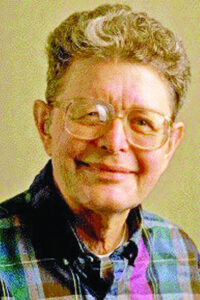
Murder in Black Letter
He groped toward the teaching of the dojo, the judo school. Judo is only, in part, a sport; it is also a philosophy, the Gentle Way, with many aspects, and the first thing to learn is to relax utterly. The passive man is prepared for anything, for he can become anything.
But it was an unreal attempt. Kintyre’s interest in judo was a superficial growth of a few years; his roots lay in the West. He suddenly bleakly understood why Bruce’s death had so clamped on him: once again, someone he cared for was gone, and the horror he had borne for two decades stirred toward awakening.
“Don’t you feel well, Dr. Kintyre?”
Harries leaned over the desk, politely concerned. “I’m sorry to put you under a strain like this. If you want to rest a while—”
“No.” Kintyre mustered a degree of steadiness. “I was a bit shaken, but—Go ahead. If Bruce was murdered, I certainly want to give you any help I can find who did it.”
The inspector regarded him thoughtfully. “You and he were pretty close, weren’t you?”
“In a way, he was almost eleven years younger than I and had lived a limited life. He is not sheltered in the usual sense, and his family is poor but limited. And he was such a peaceful fellow, and his life since entering college had been mostly books. It made him seem even younger.”
Kintyre sighed. “We got to be about as friendly as one can get under such circumstances,” he finished. “Maybe I looked on him as a son. Not being married, I can’t be sure of that.”
“Did he ever say anything which led you to believe he might be in serious trouble?”
“No. Not. That is, I knew his older brother hung—hangs around with a dubious crowd over in San Francisco, and it distressed him, but he never implied anything evil was involved.”
“Let’s see.” Harries looked at some notes. I gather he left his girlfriend’s place at about six p.m. Saturday, telling her he had business in the City and she shouldn’t wait up. She got worried and checked with you on Sunday evening.
Read or download Book
Poul William Anderson
Poul William Anderson (November 25, 1926 – July 31, 2001) was an American fantasy and science fiction author who worked from the 1940s until his death in 2001. Anderson also wrote historical novels. His awards include seven Hugo Awards and three Nebula Awards.
Biography
Poul Anderson was born on November 25, 1926, in Bristol, Pennsylvania, to Scandinavian parents. Soon after his birth, his father, Anton Anderson, relocated the family to Texas, where they lived for more than ten years. After Anton Anderson’s death, his widow took the children to Denmark. The family returned to the United States after the beginning of World War II, eventually settling on a Minnesota farm.
While an undergraduate student at the University of Minnesota, Anderson’s first stories were published by editor John W. Campbell in the magazine Astounding Science Fiction: “Tomorrow’s Children” by Anderson and F. N. Waldrop in March 1947 and a sequel, “Chain of Logic” by Anderson alone in July. He earned his BA in physics with honours but became a freelance writer after he graduated in 1948. His third story was printed in the December Astounding.
Anderson married Karen Kruse in 1953 and relocated with her to the San Francisco Bay area. Their daughter Astrid (later married to science fiction author Greg Bear) was born in 1954. They made their home in Orinda, California. Over the years, Poul gave many readings at The Other Change of Hobbit bookstore in Berkeley; his widow later donated his typewriter and desk to the store.
1954, he published the fantasy novel The Broken Sword, one of his most well-known works.
In 1965, Algis Budrys said that Anderson “has for some time been science fiction’s best storyteller”. He was a founding member of the Society for Creative Anachronism (SCA) in 1966 and of the Swordsmen and Sorcerers’ Guild of America (SAGA) during the mid-1960s. The latter was a group of heroic fantasy authors organized by Lin Carter, initially eight in number, with entries by credentials as a fantasy writer alone. Anderson was the sixth President of the Science Fiction and Fantasy Writers of America, taking office in 1972.
Robert A. Heinlein dedicated his 1985 novel The Cat Who Walks Through Walls to Anderson and eight other Citizens’ Advisory Council members on National Space Policy. The Science Fiction Writers of America made Anderson its 16th SFWA Grand Master in 1998 and 2000’s fifth class. He was inducted into the Science Fiction and Fantasy Hall of Fame as one of two deceased and two living writers. He died of prostate cancer on July 31, 2001, after a month in the hospital. A few of his novels were first published posthumously.






